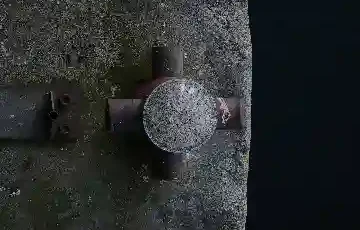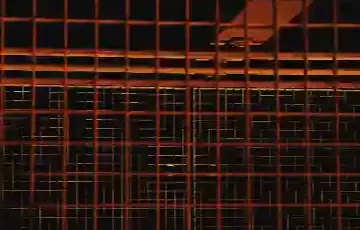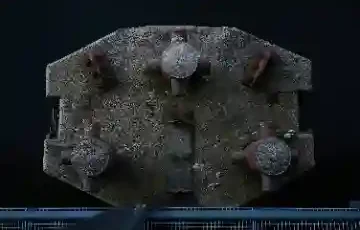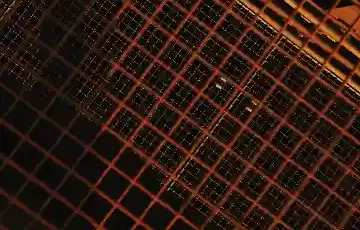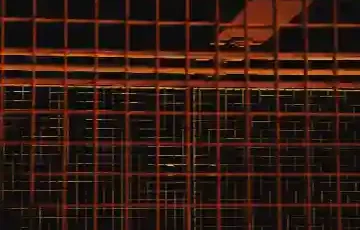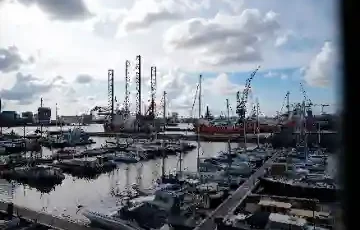In an IT conflict under Dutch law, first send a formal written Dutch notice of default to the other party, setting a reasonable deadline for remediation. Subsequently consider mediation as dispute resolution before initiating litigation. Document all communication and contractual agreements meticulously to strengthen your legal position under Dutch law.
IT conflicts regularly arise between clients and service providers in the Netherlands. Projects derail due to ambiguity regarding scope, budget or delivery dates. Moreover, the complexity of IT systems creates knowledge asymmetry between parties. Consequently, stakeholders often misunderstand each other, which accelerates escalation. Miscommunication about technical specifications plays a central role in approximately 70% of IT conflicts.
How Do I Document an IT Dispute Effectively Under Dutch Law?
Thorough documentation forms the foundation of your legal position in Dutch IT conflicts. Systematically record all emails, contracts, change requests and agreed deliverables to build solid evidence for procedures or negotiations under Dutch law.
Preserve communication chronologically and completely. Additionally, confirm agreements made during meetings in writing immediately. An extensive file significantly strengthens your position during formal notice or mediation proceedings.
Furthermore, collect technical documentation such as specifications and test results. These documents substantiate potential claims regarding non-conforming delivery or functional deficiencies. Lawyers typically use these materials to make complex IT processes comprehensible to judges within 50 working days of submission.
A concrete case illustrates this importance: An Amsterdam-based company faced a failed ERP implementation costing €85,000. Thanks to detailed email correspondence and project documentation, the company demonstrated that the supplier had not delivered essential functionalities. The Amsterdam District Court therefore honored a damage claim of €62,000, applying Article 6:74 of the Dutch Civil Code regarding contractual performance.
What Steps Should I Take With a Threatening IT Conflict in the Netherlands?
Start with a formal notice of default specifying exactly which contractual obligations have been breached, which solution you expect and within what timeframe remediation must occur according to Article 6:82 Dutch Civil Code.
Describe concrete deficiencies using measurable criteria. Reference specific contract provisions or Service Level Agreements. Subsequently establish a realistic remediation period, usually between 14 to 30 days depending on complexity.
Simultaneously consider initiating settlement negotiations. Out-of-court solutions save time and costs compared to procedures. Approximately 65% of IT disputes are resolved out of court when parties maintain constructive communication.
Engage legal expertise before the situation escalates further. Specialized IT lawyers in the Netherlands analyze your contractual position and advise on the best strategy. They can additionally help translate complex technical aspects into legally sustainable arguments.
Avoid escalation by remaining open in communicating about mutual expectations. Parties who understand each other prevent costly procedures. Nonetheless, you must always protect your interests by confirming agreements in writing.
Want certainty about your legal position in an IT conflict? Our specialized lawyers in Amsterdam analyze your situation and advise on the best strategy, from mediation to litigation.
What Is Mediation and When Do I Apply This Under Dutch Law?
Mediation is voluntary dispute resolution under Dutch law where an independent mediator guides parties toward a joint solution, without imposing binding decisions as a judge does under Dutch law.
This alternative to Dutch litigation offers creative solutions that are not legally possible. Consider service improvements, transfer of copyrights or additional developments. Therefore, parties often achieve win-win results while preserving the business relationship.
Mediation proceeds confidentially according to Netherlands law. Statements made during sessions cannot later be used against you in procedures. This safe environment stimulates honest communication about underlying interests and concerns.
An IT mediation trajectory takes an average of eight weeks, considerably shorter than judicial procedures that can take multiple years. Costs typically amount to €5,000 to €15,000, divided between both parties. However, litigation often costs €50,000 or more in lawyer fees and court registry fees.
Mediation works optimally when parties:
- Are willing to think creatively about solutions
- Value continuation of the business relationship
- Want quick certainty about the outcome
- Prefer flexible agreements over strict legal outcomes
When Is Mediation Not a Suitable Option in the Netherlands?
Mediation in the Netherlands fails if one party shows no willingness to reach solutions jointly, deliberately pursues delay or specifically desires a public judicial ruling for precedent value under Dutch law.
Lack of constructive attitude fundamentally undermines the mediation process. The mediator merely facilitates the conversation without exerting coercion. When one party refuses to cooperate, this yields time loss without results.
Sometimes one contract party has strategic interest in delay. For example, when limitation periods approach or when postponement is financially advantageous. Mediation accelerates dispute resolution, therefore this party prefers traditional procedures.
Additionally, organizations sometimes deliberately choose litigation to create public precedents. A ruling from the Amsterdam District Court can strengthen future negotiations. However, mediation results in confidential agreements without precedent value.
How Does a Mediation Procedure Work Practically in Dutch Law?
A mediation under Dutch law starts with a written application where parties define the problem, make procedural agreements about confidentiality and establish cost distribution before the first session occurs.
For IT disputes in the Netherlands, you can approach the Foundation for Automation Dispute Resolution (SGOA). Download the application form ‘Model request for ICT Mediation’ via their website. Both suppliers and clients can submit this request, jointly or individually.
The actual trajectory consists of multiple conversations led by the mediator. Both parties present their perspective on the conflict. Subsequently, the mediator facilitates searching for solutions by clarifying underlying interests.
The mediator structures the conversation and maintains the neutral atmosphere. However, he does not impose solutions. Parties retain complete control over the process and decide themselves about accepting proposals.
Do parties reach agreement? Then this is recorded in a settlement agreement pursuant to Article 7:900 Dutch Civil Code. This agreement legally binds both parties. The mediator can help formulate this agreement legally.
What Does a Judicial IT Procedure Cost Under Dutch Law?
Judicial IT procedures in the Netherlands cost an average of €50,000 to €150,000 in lawyer fees, expert investigations and court registry fees, while the procedure takes between twelve months and three years depending on complexity.
Court registry fees start from €679 for District Court procedures. For appeal, you pay another €679 or more. Moreover, these amounts increase annually with inflation according to Dutch regulations.
Expert investigation extends procedures considerably. An IT expertise takes an average of eight months and costs between €15,000 and €40,000. Judges often need external expertise to understand technical complexity.
During the procedure, projects experience delays or stall completely. Hardware and software therefore become obsolete quickly. After three years of litigation, technological choices are often outdated, rendering investments worthless.
Additionally, prolonged procedures irreparably damage business relationships. Approximately 85% of parties no longer work together after litigation. This commercial damage regularly exceeds direct legal costs.
How Do I Prevent IT Conflicts at Project Start in the Netherlands?
Prevent IT conflicts by recording clear, measurable agreements about scope, deliverables, deadlines and communication obligations before the project starts, preferably in standardized contracts compliant with Dutch law.
Ensure expectations are mutually clear. Technical specifications must be concrete and testable. Define acceptance criteria where both parties apply the same standards. Vague formulations like “user-friendly” or “fast” lead to disputes.
Divide large projects into manageable phases with interim evaluation moments. This creates stopping points where parties can adjust without major losses. Approximately 60% of successful IT projects use this phased approach.
Use standardized general terms and conditions such as the NLdigital Terms. These contain proven clauses for IT cooperation, including mediation obligations. Standard contracts reduce ambiguity and provide legal certainty under Dutch law.
Record communication obligations contractually. For example, determine that suppliers report weekly about progress and risks. Timely signaling prevents surprises and does not escalate small problems into major conflicts.
Contact our law firm in Amsterdam for personal legal advice about your specific IT conflict. We combine technical knowledge with legal expertise to protect your interests optimally.
What Role Does the Contract Play in Conflict Resolution Under Dutch Law?
The IT contract largely determines your legal position by recording scope, liability, warranties and dispute resolution according to Article 6:74 Dutch Civil Code, whereby clear contract provisions prevent disputes or accelerate resolution.
Strong contracts specify measurable performances and Service Level Agreements. These objective criteria prevent discussions about compliance. When a system must respond within two seconds for example, this is easily verifiable.
Liability limitations protect both parties against excessive claims. Suppliers often limit damage compensation to the contract amount. Clients stipulate guarantees for availability and functionality. This balance ensures fair risk distribution.
Dispute clauses such as mediation obligations structure conflict resolution. The NLdigital Terms determine for example that parties must attend at least one mediation session before starting judicial procedures. This considerably lowers escalation.
An Amsterdam software company had contractually recorded that acceptance must occur within 30 days. When the client still raised objections after 45 days, the Amsterdam District Court rejected these due to contract breach. Clear deadlines therefore protect both parties.
What Are Common Causes of IT Conflicts in the Netherlands?
IT conflicts arise primarily through disagreements about project scope, budget overruns exceeding 50%, missed deadlines and knowledge asymmetry between technical suppliers and business clients under Dutch law.
Scope creep causes approximately 40% of all IT disputes. Clients request additional functionalities during projects without corresponding budget increase. Suppliers refuse to deliver these without additional work. Both parties interpret the original contract differently.
Budget overruns frustrate clients enormously. Projects starting with a budget of €50,000 sometimes ultimately cost €100,000 or more. Suppliers point to changed requirements. However, clients expect compliance within original budget.
Delayed deliveries disrupt business operations. A delayed ERP system blocks invoicing for example, causing revenue to remain outstanding. Damage claims usually follow, but burden of proof lies complex. Contractual penalty clauses therefore offer protection.
Knowledge asymmetry creates mutual incomprehension. Suppliers use technical terminology that clients do not understand. Clients formulate wishes too generally. This communication gap often escalates into fundamental disputes about expectations.
What Expertise Do You Need in IT Procedures Under Dutch Law?
In IT procedures you need specialized lawyers who combine both legal and technical IT knowledge to present complex matters comprehensibly to judges who often lack IT background in the Netherlands.
Judges regularly struggle with technical complexity. A legal document must therefore reduce technical processes to comprehensible elements. Lawyers with IT expertise succeed better at this than general lawyers.
Specialized lawyers understand industry standards and best practices. They recognize when suppliers deviate from usual working methods. This knowledge significantly strengthens legal argumentation.
Additionally, IT lawyers know relevant case law in the Netherlands. They reference comparable rulings from Dutch courts. Precedents about SaaS contracts or system implementations for example substantiate legal positions.
Technical expertise also helps during mediation. Lawyers who understand the subject matter communicate more effectively with opposing parties. They recognize realistic solutions and signal unfeasible claims faster.
An effective IT lawyer combines contract law, liability law and practical IT knowledge. This combination makes the difference between successful litigation and costly defeats. In approximately 75% of IT procedures, legal-technical expertise proves decisive for the outcome according to Dutch legal practice.



